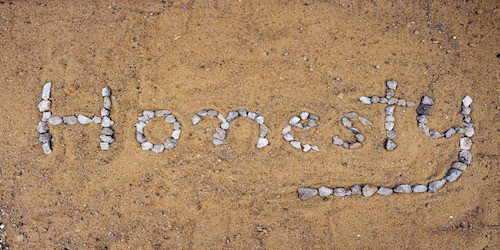Who Me?
Parenting is awesome. The sleepless nights, worrying, hoping the kids grow up to be perfect little angels. Okay, maybe that’s a little overdramatic, but that is the life of the average parent. However, all joking aside, parenting is awesome! Especially when you get to teach important life lessons, such as teaching children the importance of honesty.
All children are born honest and do not have the capacity for dishonesty. Dishonesty is a learned trait, so children must understand why honesty is crucial for a good moral compass. Dishonesty has many gray areas, especially for young children, so be careful when discussing it and treading down some of those avenues. However; children tend to do what they see, so when they see their parents displaying good examples of honesty, they’ll get it!
Take note that peer pressure is always prominent during the development of a child’s moral compass. That’s why parents must teach the importance of honesty to their children sooner than later. And isn’t it every parent’s dream to raise honest children?
Help Children Define “Honesty”

What is honesty? Well, when it comes to young children that’s about as simple as defining “Who” or “What” is God, Life, Liberty, and the Pursuit of Happiness! First, don’t stress over it. Just accept the fact that your children will have difficulties in defining and understanding honesty. It’s not that they are trying to be dishonest. But unlike breathing, the concept of honesty must be taught and learned.
Telling the truth is important and just one aspect of honesty. Honesty goes hand-in-hand with things like trust, integrity, moral character, and sincerity. As a parent, you must help your children to understand that honesty is not “just” what they say. When teaching honesty, show your children that it’s also sometimes what they “don’t say” that matters. Leaving out details, so something sounds true, may not just be in that gray area of truth and honesty. It may be lying and outright dishonest.
Ask your child, “What should you do, if you find something that you’ve always wanted and you know who it belongs to?” Does the monetary value of the item make a difference? Is it theirs to keep? Is it dishonest to keep it? Finders keepers, losers weepers? What would you do in this situation? Does your moral compass point north?
Honesty Is The Best Policy
Honesty doesn’t just apply to when you find things. The importance of honesty is defined by one’s conduct, such as not cheating or saying untrue things about others. Explain to your children that being honest and truthful will define their character as they grow up. That trust is earned when individuals see your actions are honest.
You must also teach your child that sometimes being honest hurts. Of course, this is where things can get a little gray. Like when mom asks dad if she looks fat in her favorite dress. Unless he wants to sleep on the couch, his answer should always be along the lines, “No dear, you look wonderful tonight.” Unlike when your child’s best friend “tells” them to do their homework or they won’t be friends any longer. In a case like that, your child will need to have the courage to explain to their friend that they can’t do the homework for them. They can help their friend to understand it in other ways, but it would be wrong for them to do the work.
Remember, kids are born honest, they just don’t understand it. Taking time teaching children the importance of honesty when they are young will ensure that those principles and values will be part of their moral compass as they mature. And along the way, don’t forget that parenting is awesome. Make sure you check out Nuff’s latest adventure titled It Pays To Be Honest. Read along as his character is tested to the extreme and he has to decide if he should do what he knows is right or do what his heart wants him to. Find out what happens as he’s put to the test… the test of honesty.
